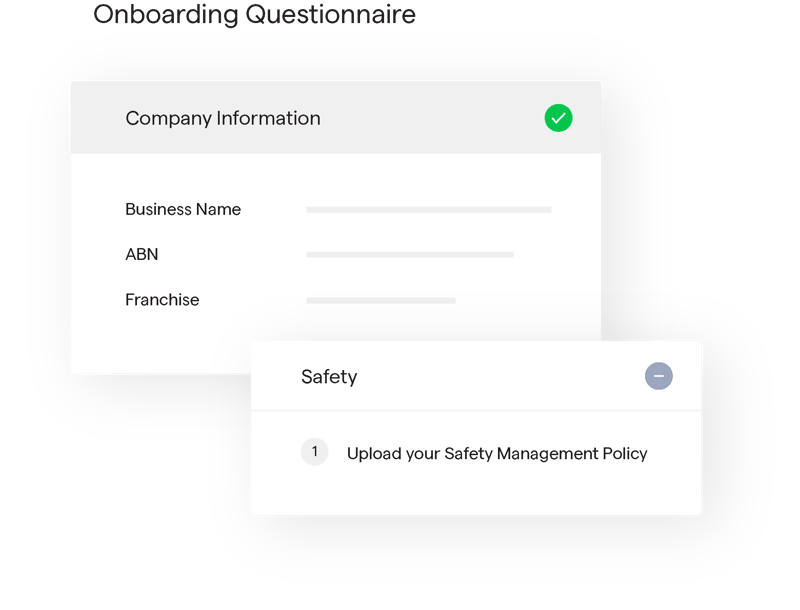Prequalification that saves time, decreases admin costs and reduces risk
Prequalify your supply chain by using Felix Vendor Optiqual® – empowering organisations to be more productive and focused on value-accretive tasks, while ensuring supply chain risk is managed through best-practice framework.


Dan Wilson Construction Expert | Felix

Liam Gill Building Expert | Felix

Knowing your vendors reduces your risk
Seamlessly implement a tailored solution that provides the foundation to ensure that third-party vendors you engage with are pre-qualified to proven standards.
Additionally, the data available to you on existing and new vendors in your supply chain is comprehensive, accurate and up-to-date.
- Obtain sufficient and relevant vendor information
- Make more informed decisions
- Adhere to a prequalification framework that is best-in-class

Rapid vendor implementation
Vendor Optiqual® significantly reduces the time, cost and resources to design and implement a prequalification and categorisation framework into your organisation.
An onboarding process for 12-14 weeks is reduced to just 4-6 weeks, allowing you to get to work quicker.
- Standardised approach to Health & Safety, Environment, Quality, Sustainability, IR and CSR information
- Relevant prequalification journey based on service offering and risk level
- Interoperate with vendor marketplace through standardised categorisation

How well do you know your vendors?
It’s critical to have vendor information that is sufficient, complete and up-to-date to reduce risk levels for procurement processes.
Here are some statistics that might make you question how well you know your vendors:
(ABS 2020)
A standard prequalification framework
- Vendor Optiqual®
- Know your vendors
- Smart workflows
- Vendor benefits
Vendor Optiqual®
Industry proven standards
Tailor a vendor prequalification questionnaire for your organisation based on internationally recognised standards PAS 91 and PAS 7000. This lays a common foundation to maximise synergy and network effect.
Know your vendors
De-risking your supply network
Capture the right level of business critical information across key areas, with core questions and optional/extended questions.
Example topics are shown here.
Smart workflows
Process governance made easy
Streamline the information collection as well as assessment process, with automated adherence to business rules.
Vendor benefits
Reduce admin burden
Develop a standard response to the “core” questions which can be used time and time again.
A less time-consuming and costly process also encourages more vendors to apply for work and focus on delivering value to clients.

Minimise your risk, maximise your relationships
Agile, flexible, trusted. Learn how Felix can bring smarter procurement processes to your business with a purpose-built solution.
Helpful Resources

Introducing standardised prequalification: Vendor Optiqual®
In this webinar, find out what standardised prequalification means, its benefits, and how Vendor Optiqual® can be implemented.

Why you need a standardised prequalification framework
With the reliance on third-party vendors being here to stay, there are clear opportunities to improve the very first interaction that would lay a foundation for strong supply chain relationships.

The fundamentals of vendor prequalification
Knowing your third-party suppliers and contractors is no longer a nice-to-have. It’s a prerequisite for supply chain risk management.

